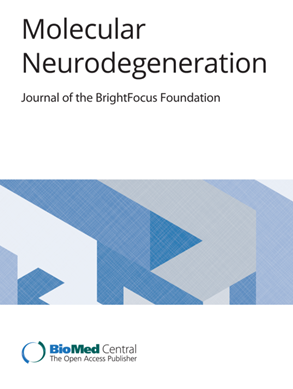The integrated stress response in neurodegenerative diseases
IF 17.5
1区 医学
Q1 NEUROSCIENCES
引用次数: 0
Abstract
The integrated stress response (ISR) is a conserved network in eukaryotic cells that mediates adaptive responses to diverse stressors. The ISR pathway ensures cell survival and homeostasis by regulating protein synthesis in response to internal or external stresses. In recent years, the ISR has emerged as an important regulator of the central nervous system (CNS) development, homeostasis and pathology. Dysregulation of ISR signaling has been linked to several neurodegenerative diseases. Intriguingly, while acute ISR provide neuroprotection through the activation of cell survival mechanisms, prolonged ISR can promote neurodegeneration through protein misfolding, oxidative stress, and mitochondrial dysfunction. Understanding the molecular mechanisms and dynamics of the ISR in neurodegenerative diseases aids in the development of effective therapies. Here, we will provide a timely review on the cellular and molecular mechanisms of the ISR in neurodegenerative diseases. We will highlight the current knowledge on the dual role that ISR plays as a protective or disease worsening pathway and will discuss recent advances on the therapeutic approaches that have been developed to target ISR activity in neurodegenerative diseases.神经退行性疾病的综合应激反应
综合应激反应(integrated stress response, ISR)是真核细胞中一个保守的网络,介导对多种应激源的适应性反应。ISR通路通过调节蛋白质合成来应对内部或外部压力,从而确保细胞存活和稳态。近年来,ISR已成为中枢神经系统(CNS)发育、稳态和病理的重要调节因子。ISR信号的失调与几种神经退行性疾病有关。有趣的是,虽然急性ISR通过激活细胞存活机制提供神经保护,但长期ISR可以通过蛋白质错误折叠、氧化应激和线粒体功能障碍促进神经退行性变。了解ISR在神经退行性疾病中的分子机制和动力学有助于开发有效的治疗方法。在此,我们将及时综述ISR在神经退行性疾病中的细胞和分子机制。我们将重点介绍目前关于ISR作为保护或疾病恶化途径的双重作用的知识,并将讨论针对神经退行性疾病中ISR活性的治疗方法的最新进展。
本文章由计算机程序翻译,如有差异,请以英文原文为准。
求助全文
约1分钟内获得全文
求助全文
来源期刊

Molecular Neurodegeneration
医学-神经科学
CiteScore
23.00
自引率
4.60%
发文量
78
审稿时长
6-12 weeks
期刊介绍:
Molecular Neurodegeneration, an open-access, peer-reviewed journal, comprehensively covers neurodegeneration research at the molecular and cellular levels.
Neurodegenerative diseases, such as Alzheimer's, Parkinson's, Huntington's, and prion diseases, fall under its purview. These disorders, often linked to advanced aging and characterized by varying degrees of dementia, pose a significant public health concern with the growing aging population. Recent strides in understanding the molecular and cellular mechanisms of these neurodegenerative disorders offer valuable insights into their pathogenesis.
 求助内容:
求助内容: 应助结果提醒方式:
应助结果提醒方式:


